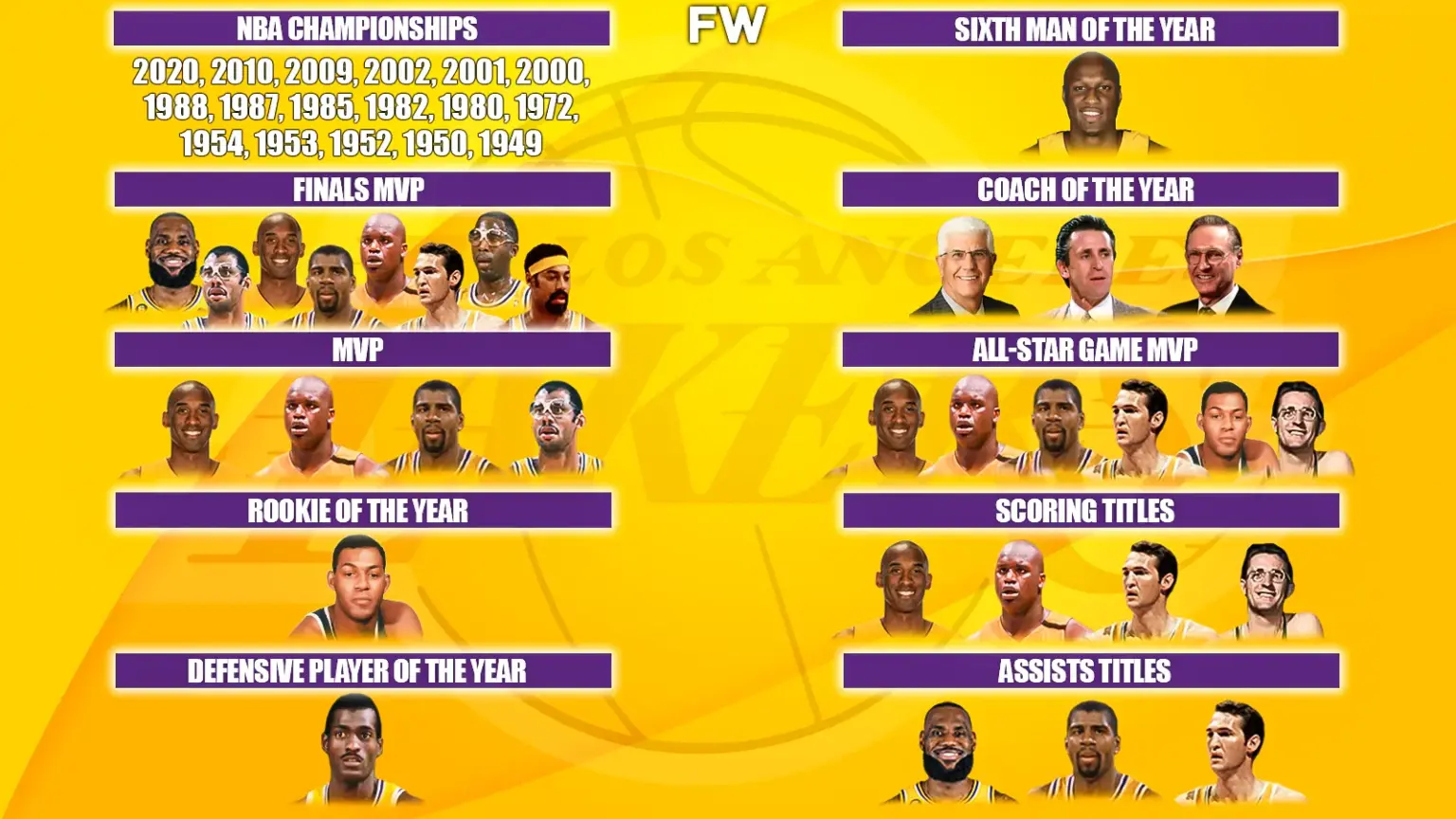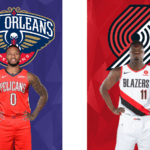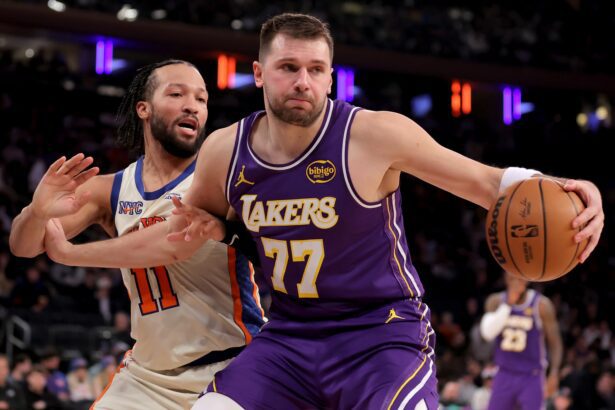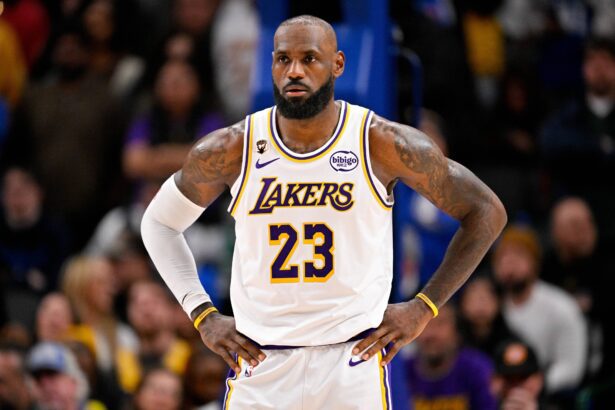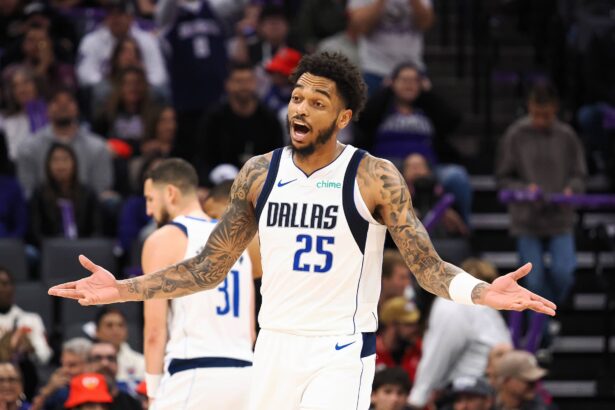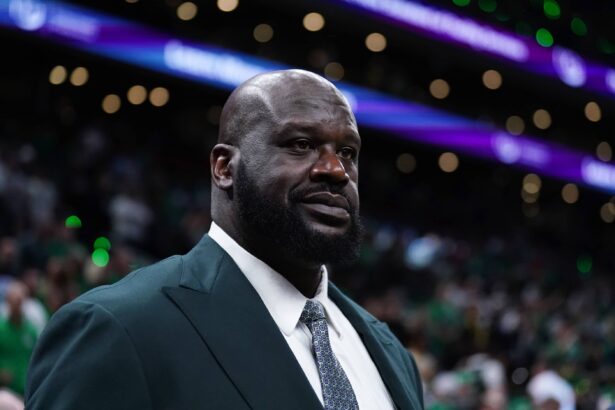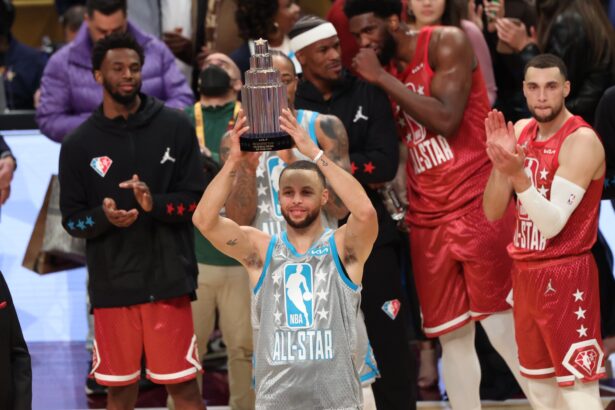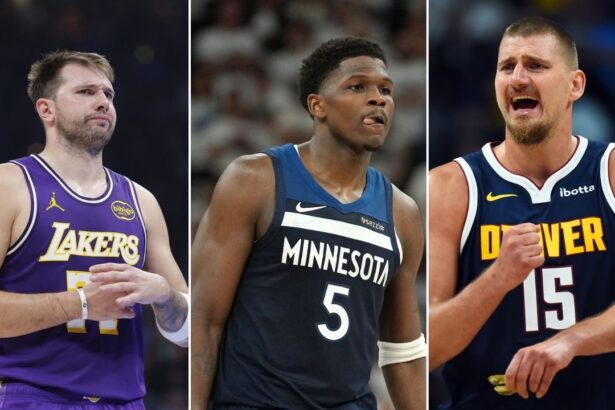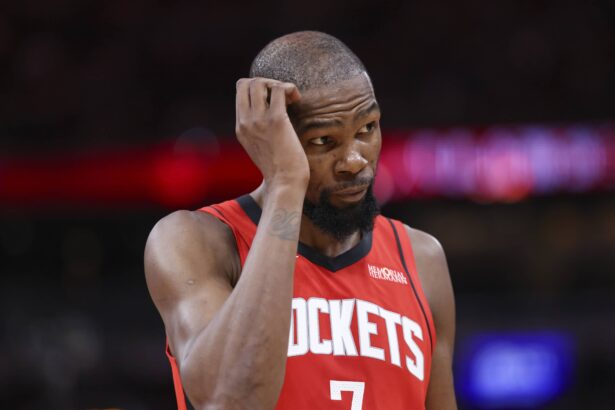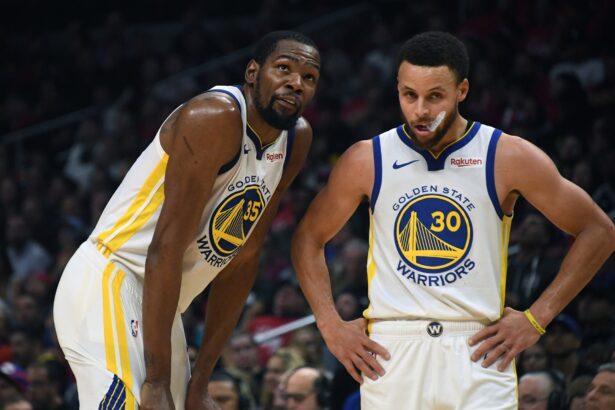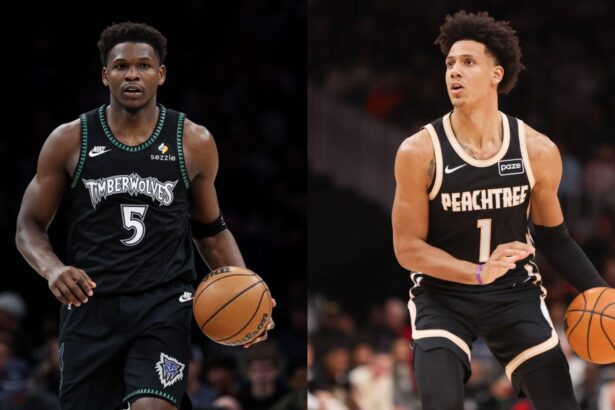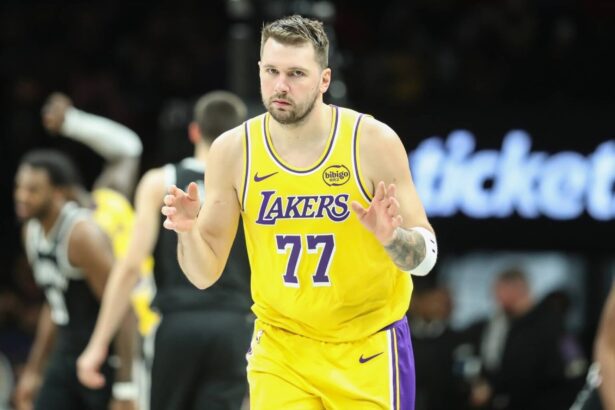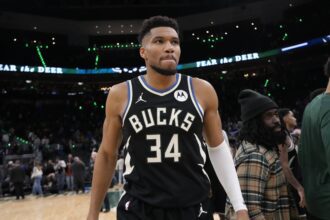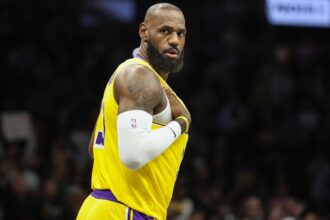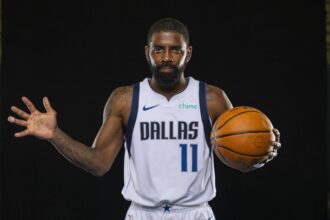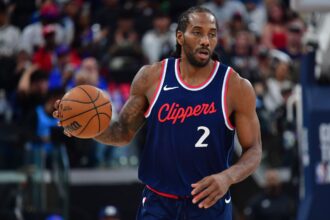The Los Angeles Lakers are not only one of the most successful NBA teams in history, but they are also one of the world’s most recognizable brands. From their start in Minneapolis to their pursuit of an 18th championship in 2022-23, the NBA would simply not be the same without the team that dons the purple and gold from L.A. Within their rich and long history, the Lakers have had some all-time great players take the court and made memories that will last a lifetime for NBA fans.
Today, we will dive into the illustrious history of one of the NBA’s greatest franchises deeper than we ever have before. The goal is to tell the story of the Lakers through championship teams and the players who were awarded for their efforts in building the legacy of this franchise. We will discuss and relive the greatest moments, players, and even coaches in Lakers’ history while simultaneously telling the story of how the Lakers came to be an NBA powerhouse and one of the NBA’s most celebrated franchises.
This is the history of the Los Angeles Lakers told through awards.
NBA Championships
17 Championship Teams
1949, 1950, 1952, 1953, 1954, 1972, 1980, 1982, 1985, 1987, 1988, 2000, 2001, 2002, 2009, 2010, 2020
The first five NBA championships won by the Lakers came at a time when they were still the Minneapolis Lakers playing their games up north in Minnesota. The Lakers matched up with the Washington Capitols in their first championship win led by Lakers legend George Mikan in his rookie season. Mikan led the NBA in scoring that year with 28.3 PPG, something he would do for the first three seasons of his career. The Lakers would take care of the Captiols in six games, with Mikan leading the way averaging 27.5 PPG, and Herm Schafer and Jim Pollard each going for just over 12.0 PPG.
The Lakers would repeat as champions during the 1950 season, with Mikan leading the NBA in scoring once again with 27.4 PPG. This time, the Lakers would match up with the Syracuse Nationals led by NBA Top 75 member Dolph Schayes. Once again, the Lakers cruised to an NBA championship led by George Mikan’s 32.2 PPG, along with 13.7 PPG from Jim Pollard and 12.5 PPG from Vern Mikkelsen.
After missing a shot at an NBA championship in 1951, the Lakers would find themselves back in the NBA Finals in 1952 against the New York Knicks. The Knicks had several options on the offensive side of the ball, including Connie Simmons and Nat Clifton. The Lakers were ready for their attack, though, as the teams battled for seven games. In Game 7, it would be Mikan leading the Lakers to another NBA championship with 22 points and 19 rebounds. Mikan averaged 21.7 PPG and 17.4 RPG for the series, and Pollard added 16.4 PPG.
The Lakers had already become a dynasty during the 1950s and continued to build on that for the next few seasons. In 1953, the Lakers and Knicks found themselves in yet another battle in the NBA Finals. This time, the path would not be as difficult for the Lakers as they easily dismissed the Knicks in 5 games. Mikan led the way to the Lakers’ fifth title with 20.8 PPG, while Pollard, Mikkelsen, and Slater Martin all added at least 10.0 PPG as well.
In 1954, the Lakers would three-peat as NBA champions, capturing their fifth title overall in the past six seasons. The Lakers were once again slated against the Syracuse Nationals, just as they had in 1950. Paul Seymour and Wally Oskerton led the way for Syracuse to push the series to 7 games. However, Mikan’s 18.1 PPG and 10.0 PPG from each Pollard, Mikkelsen, and Clyde Lovellette were enough to sway the series and NBA championship in their favor.
The Lakers would struggle for the next 17 seasons to win another championship with two teams, the Boston Celtics and New York Knicks, usually being the ones to end their season in the NBA Finals. They had traded in the cold of Minnesota for the sunny skies of California and were looking to build a legacy that matched their Minneapolis success but always fell just short. The story was different in 1972, however, as the Lakers, with Jerry West, Wilt Chamberlain, and Gail Goodrich, stormed their way back to the NBA Finals for a rematch of the 1970 series with the New York Knicks. This series would be won by the Lakers with ease in 5 games as Goodrich averaged 25.6 PPG and West and Chamberlain each added just over 19.0 PPG. Wilt also added 23.2 RPG to be named Finals MVP.
It would be another nine seasons until the Lakers would taste championship glory again, but it also ushered in a new era in Lakers’ history. Led by a rookie named Magic and one of the greatest players in NBA history, Kareem Abdul-Jabbar, the Lakers were back in business to kick off the 1980s. Magic and Kareem, along with an elite supporting cast, introduced the world to Showtime basketball as they made their way to the 1980 NBA Finals against the Philadelphia 76ers. Kareem was a major problem for the 76ers until he got injured in Game 5 and would be ruled out for Game 6. Magic Johnson would get the start at center for the Lakers and deliver one of the greatest performances in NBA Finals history. He sealed the championship with 42 points, 15 rebounds, and 7 assists to claim his first NBA championship and became the youngest Finals MVP in NBA history.
Magic and Kareem would have the Lakers back on the cusp of an NBA championship once again in 1982 as they advanced to the Finals to play the 76ers once again, led by Julius Erving. History would repeat itself in favor of the Lakers as they defeated Philadelphia in six games, just as they did in 1980. Magic repeated as Finals MVP with 16.2 PPG, 10.8 RPG, 8.0 APG, and 2.5 SPG. Kareem and Jamaal Wilkes were the only two Lakers to average above 18.0 PPG, and Norm Nixon added 17.7 PPG as well.
It is important to remember that eight out of 10 NBA Finals during the 1980s featured the Los Angeles Lakers. Magic and Kareem, along with a supporting cast of Norm Nixon, Byron Scott, Michael Cooper, and eventually James Worthy, among many others, were vital to team success during this time. In 1985, the Lakers would capture yet another NBA championship. It would be a rematch of the 1984 Finals that saw the Celtics defeat the Lakers and the second Finals matchup between rivals Larry Bird and Magic Johnson. The Lakers got their revenge in a six-game series win over Boston led by Finals MVP Kareem Abdul-Jabbar, who finished the series with 25.7 PPG, 9.0 RPG, and 1.5 BPG. James Worthy also poured in 23.7 PPG, while Magic had 18.3 PPG, 6.8 RPG, and 14.0 APG.
In 1987, the Lakers would be freight back to where they had been in their last three Finals appearances, and that was in a matchup against Larry Bird and the Boston Celtics. It was the rubber match to determine who would be crowned the true team of the 80s as Boston went for their fourth championship of the decade, as were the Lakers. Once again, Los Angeles would reign supreme over Boston in 6 games. Magic captured his third Finals MVP with 26.2 PPG, 8.0 RPG, and 13.0 APG. Kareem and Worthy each contributed with over 20.0 PPG as well, and Michael Cooper played stifling defense with 1.7 SPG to take home the championship.
The Lakers would repeat as NBA champions in 1988, but this time, Boston was nowhere to be found. Instead, the Lakers faced the tough task of going up against Isiah Thomas, Joe Dumars, and the rest of the Bad Boy Pistons. It would be a hard-fought series that went seven games between the two great franchises. In Game 7, James Worthy delivered a magical triple-double performance to help lead the Lakers to their fifth NBA championship of the decade and the final one of Kareem Abdul-Jabbar’s career as he retired following the following season.
After dominating the 80s, the Lakers would go into a drought during the 1990s despite a few close runs back to the NBA Finals and one loss in the NBA Finals in 1991. In 2000, the Lakers had retooled with the most dominant player in NBA history, Shaquille O’Neal, and a young budding star by the name of Kobe Bryant. In 2000, the Lakers bulldozed their way through the playoffs to take on Reggie Miller and the Indiana Pacers. Indiana fought valiantly, but in the end, it was Los Angeles who was crowned NBA champs. O’Neal averaged 38.0 PPG and 16.7 RPG to lead the way as Bryant added 15.6 PPG, and Glen Rice, as well as Ron Harper, each provided over 10.0 PPG.
The 2001 season would be an even more dominant run for the experienced and talented duo of Kobe and Shaq. The Lakers would lose just one game for the entirety of the NBA playoffs this season which was Game 1 of the NBA Finals against Allen Iverson and the 76ers. Despite the setback to begin the series, the Lakers would win the next four games to repeat as NBA champions. Shaq led the way again with 33.0 PPG and 15.8 RPG, while Bryant added 24.6 PPG, 1.4 SPG, and 1.4 BPG.
In 2002, Kobe and Shaq would cement their status as one of the greatest duos in NBA history. The pair would lead the Lakers to their third straight NBA championship in a matchup with the New Jersey Nets. As hard as New Jersey fought, they were no match on the interior for O’Neal, who averaged 36.3 PPG and 12.3 RPG in the 4-game sweep. Bryant added 26.8 PPG, and Derek Fisher added 12.8 PPG as well as the Lakers ran New Jersey all the way back to the East Coast in the blink of an eye.
The time between their 2002 NBA title and their next one in 2009 were some low points for the Lakers as a franchise. They lost Shaquille O’Neal to trade after he and Kobe Bryant could not stop beefing with one another over money and control. They had some of their worst single seasons in team history, and many were questioning Bryant’s ability to lead or win without Shaq. Not to mention, they would lose the 2008 NBA Finals to the Celtics. In 2009, the Lakers made their way back to the top of the NBA hierarchy with their 15th NBA championship. Kobe Bryant and Pau Gasol would be the ones to lead L.A. to the promised land over Dwight Howard and the Orlando Magic in 5 games. Bryant led the way with 32.4 PPG, 7.4 APG, 1.4 SPG, and 1.4 BPG.
In 2010, the Lakers would win their 16th NBA championship while getting revenge on the Celtics, who defeated the Lakers just two seasons prior in the NBA Finals. The 2010 series would go to 7 games between the two historic franchises, with an 83-79 win in Game 7 going the Lakers’ way. Bryant was once again the star of the show with 28.6 PPG and 8.0 RPG, but Gasol added a double-double as well with 18.6 PPG and 11.6 RPG. The Lakers’ mission was complete, and they had sent the Celtics packing in one of the most satisfying title wins in team history.
The Lakers’ 17th and most recent NBA championship came under some scrutinized circumstances. The 2020 season marked unprecedented times in the NBA as the world was shut down to the COVID-19 pandemic. The NBA was the first sports league to shut its doors but also the first to restart that summer. The Lakers hit the bubble well-rested and ready for a chance at NBA glory, no matter how difficult the conditions at Disney were. Led by LeBron James and Anthony Davis, the Lakers were able to win their 17th title over James’ former team, the Miami Heat. James averaged 29.8 PPG, 11.8 RPG, and 8.5 APG, while Davis had 25.0 PPG and 10.7 RPG to help in the cause.
Finals MVP
Jerry West (1969), Wilt Chamberlain (1972), Magic Johnson 3x (1980, 1982, 1987), Kareem Abdul-Jabbar (1985), James Worthy (1988), Shaquille O’Neal 3x (2000, 2001, 2002), Kobe Bryant 2x (2009, 2010), LeBron James (2020)
With their 17 NBA championships in tow, the Lakers have had the pleasure of boasting eight different players who have taken home Finals MVP awards. The first of these players in the most unique Finals MVP award ever is Jerry West. In 1969, the NBA handed out its inaugural Finals MVP award after a battle of a series between the Celtics and Lakers. The Celtics would win the series 4-3, but it would be West taking home the Finals MVP honors with one of the highest-scoring series by a Finals MVP in history. He averaged 37.9 PPG and 7.4 APG in the series, but I am certain he would have traded that award for an NBA championship.
The next player to be named Finals MVP for the Los Angeles Lakers would be Wilt Chamberlain in 1972. It would be the second time in his career that Wilt helped lead a team to an NBA championship, just as he did with the Sixers in 1967. Chamberlain helped the Lakers dominate the Knicks in 1972 as they captured the NBA championship in 5 games. Wilt averaged 19.4 PPG along with 23.2 PPG on 46.9% shooting from the field to win Finals MVP. He also led the Lakers in minutes played with 236, something that isn’t surprising considering his track record of staying on the court.
Magic Johnson is the first Lakers player to appear in this category as a multi-time winner of the Finals MVP award. Johnson won his first Finals MVP as a rookie in 1980 in one of the most legendary performances in NBA Finals history, filling in for an injured Kareem to seal the championship. He would win his second Finals MVP in 1982 against the 76ers once more in 6 games with 16.2 PPG, 10.8 RPG, 8.0 APG, and 2.5 SPG. His last Finals MVP would come in 1987 in a series win over the Boston Celtics and rival Larry Bird. Johnson led the Lakers to their fourth title of the decade with 26.2 PPG, 8.0 RPG, 13.0 APG, and 2.3 SPG.
When looking back on the career of Kareem Abdul-Jabbar, it is hard to believe that he only won two Finals MVP awards in his career and only one with the Lakers. Kareem’s sole Lakers Finals MVP performance came in 1985 in an absolute war with the Boston Celtics. The Lakers defeated the Celtics in six games, led by Kareem’s 25.7 PPG, 9.0 RPG, 5.2 APG, 1.0 SPG, and 1.5 BPG.
James Worthy is one of the most underrated players in both NBA and Lakers history. Worthy is among the top scorers in Lakers history as well as one of only eight to be named Finals MVP. Worthy won his only Finals MVP in a war with the Detroit Pistons in the 1988 Finals. The series went to seven games, and Worthy answered the call in Game 7. He led the Lakers to their fifth title of the decade with 36 points, 16 rebounds, and 10 assists in Game 7 to seal the championship 108-105. It did help that the Lakers were aided by one of the worst calls in NBA history when Pistons big man Bill Laimbeer was called for a phantom foul on Kareem at the end of regulation.
In the early 2000s, there was no team that could stop the Lakers or a big man in the league who could slow down Shaquille O’Neal. O’Neal would have one of the most dominant three-year stretches in NBA history from 2000 thru 2002, which would result in three NBA championships for the Lakers and all three of O’Neal’s career Finals MVP awards. In each of the three Finals MVP performances, O’Neal averaged at least 33.0 PPG, 12.0 RPG, and 2.7 BPG with victories over the Pacers, 76ers, and Nets.
Several seasons after his dominant run alongside Shaq in the early 2000s, Kobe Bryant would have the Lakers back in a position to add to their championship total. After falling short in 2008 to the Celtics, Bryant led the Lakers back to the NBA Finals in 2009 for a matchup with the Orlando Magic. Bryant made easy work of Orlando in five games averaging 32.4 PPG, 5.6 RPG, and 7.4 APG to win his first Finals MVP. Bryant would take the Lakers to back-to-back NBA championships in 2010, finally getting his revenge on the Boston Celtics, who had denied him a title two seasons earlier. He averaged 28.6 PPG and 8.0 RPG in the 7-game series to win his fifth title and second Finals MVP.
When LeBron James arrived in Los Angeles in 2019, things did not go to plan. As he went down with an injury that season, the Lakers’ playoff hopes went down with him. In 2020, the Lakers decided to give James some superstar help when they acquired Anthony Davis just prior to the start of the 2020 season. The duo looked like their shot at a championship would be thwarted due to COVID-19 and a shutdown to the season. However, with the NBA playoffs being held in a bubble environment, LeBron seized his opportunity for another NBA title. He would lead the Lakers to their first Finals appearance in a decade against the Miami Heat. James would finish the job in six games, winning his fourth career Finals MVP averaging 29.8 PPG, 11.8 RPG, 8.5 APG, and 1.2 SPG.
MVP
Kareem Abdul-Jabbar 3x (1976, 1977, 1980), Magic Johnson 3x (1987, 1989, 1990), Shaquille O’Neal (2000), Kobe Bryant (2008)
Only four different players in Lakers history have been named MVP in NBA history for a total of eight MVP seasons. Kareem was a three-time winner of the MVP award in his Lakers career and is the NBA record holder with six MVPs in his career. Abdul-Jabbar was named MVP in each of his first two seasons with the Lakers after coming over from the Bucks in 1976 and 1977. In 1976, Kareem led the NBA with 16.9 RPG and 4.1 BPG while adding 27.7 PPG to lead the Lakers to a 40-42 record. In 1977, the Lakers would win 53 games, led By another MVP season from Kareem with 26.2 PPG, 13.3 RPG, and 3.2 BPG. His final MVP would come in 1980 when he averaged 24.8 PPG, 10.8 RPG, and 3.4 BPG for a Lakers team that won 60 games and the NBA championship.
The only other player in Lakers history to win multiple MVP awards is Magic Johnson. As the leader and conductor of the Showtime offense, Magic would win three MVP awards in his 13 years as the Lakers’ starting point guard. His first MVP would come in 1987 when he averaged 23.9 PPG, 5.9 RPG, 12.2 APG, and 1.7 SPG for the 65-win Lakers. Two years later in 1989, Magic would win his second MVP averaging 22.5 PPG, 7.9 RPG, 12.8 APG, and 1.7 SPG for the 57-win Lakers, who would lose in the NBA Finals. His last MVP award would come in 1990 when he averaged 22.3 PPG, 11.5 APG, and 1.7 SPG for the 63-win Lakers.
Shaquille O’Neal played for the Los Angeles Lakers from 1997 thru 2004 on the most dominant stretch of his entire career. It is almost criminal that Shaq was not awarded with more than one MVP award, but that is what happened. In 2000, Shaq would take home the only MVP award of his career, averaging 29.7 PPG, which led the league, along with 13.6 RPG and 3.0 BPG. O’Neal would also win the All-Star Game MVP award along with an NBA championship and Finals MVP as well.
The final MVP-winner in Los Angeles Lakers is also their most iconic player in franchise history. Kobe should also have at least two MVP awards, if we are being honest, missing out in both 2006 and 2007. Bryant would be awarded the only MVP of his career in 2008 when he averaged 28.3 PPG, 6.3 RPG, 5.4 APG, and 1.8 SPG. The Lakers would win 57 games during the regular season but ultimately lose to the Boston Celtics in the NBA Finals in six games. Bryant would have the last laugh over the next few seasons as he led the Lakers to back-to-back championships in 2009 and 2010.
Rookie Of The Year
Elgin Baylor (1959)
Despite a long and rich history, the Lakers have only had one Rookie of the Year award winner ever play for their franchise. That rookie was Elgin Baylor back in 1959 when the Lakers still called Minneapolis home. Baylor would have a tremendous rookie year averaging 24.9 PPG and 15.0 RPG on 40.8% shooting. Baylor would help the Lakers reach the playoffs with a 33-39 record and averaged 25.5 PPG and 12.0 RPG in the playoffs to help the team reach the NBA Finals. Baylor and the Lakers would lose that series 4-0 to the Celtics, but the league was on notice that there was a new superstar in town for the Lakers.
Defensive Player Of The Year
Michael Cooper (1987)
Just as was the case with Rookie of the Year, the Lakers have only been honored with a Defensive Player of the Year award winner in their franchise’s history. Michael Cooper is one of the unsung heroes of the Showtime era with the Lakers, as he was easily one of the best perimeter defenders in the entire NBA. In 1987, Cooper would play all 82 games, making just two starts but often coming off the bench and shutting down an opponent’s best player on any given night. Cooper averaged 1.0 SPG and 0.5 BPG, but disruption and impact can only be felt by revisiting the year that was for Cooper on film.
Sixth Man Of The Year
Lamar Odom (2011)
Lamar Odom played with the Lakers from 2005 thru 2011 after coming over from Miami in the Shaquille O’Neal trade. Odom would be the starter at power forward for the first four seasons he was with Los Angeles before transitioning to a role off the bench. Odom would win two NBA titles with the Lakers in 2009 and 2010 off the bench and his Sixth Man of the Year award in 2011. Odom averaged 14.4 PPG, 8.7 RPG, and 3.0 APG in 82 games played for the Lakers in 2011, which would end up being his last season with the Lakers and one of the final seasons of his career.
Coach Of The Year
Bill Sharman (1972), Pat Riley (1990), Del Harris (1995)
You may be shocked to learn that the Lakers have only had three Coach of the Year winners in team history, none of whom were named Phil Jackson. The first Coach of the Year in team history was Bill Sharman, which is ironic considering Sharman helped take down the Lakers several times as a player with the Boston Celtics. Sharman coached the Lakers for five seasons accumulating a 246-164 record overall. In 1972, Sharman would lead the Lakers to a 69-13 record and an NBA championship over the Knicks to win Coach of the Year.
Pat Riley is one of the greatest coaches in NBA history and he got his start with the Lakers as an assistant in 1980. Four seasons later, he would take the helm as the head coach for the next nine seasons. In his final season as Lakers coach in 1990, Riley led the team to a 63-19 record and a shot at his fifth NBA championship as head coach. That opportunity would be thwarted, but Riley is still recognized as one of the greatest coaches in Lakers history by players, fans, and fellow members of the coaching inner circle.
The final Coach of the Year winner in Lakers history was Del Harris in 1995. Harris coached the Lakers for five short seasons from 1995 thru 1999 and accumulated an overall record of 224 wins and 116 losses. In his first season as coach, Harris would be awarded the Coach of the Year award for turning the team around from an abysmal 1994 season that saw them win just 33 games. In 1995, they improved to 48-34 in Harris’ first season as coach. It would be the worst record that the Lakers held in five seasons with Harris at the helm.
All-Star Game MVP
George Mikan (1953), Elgin Baylor (1958), Jerry West (1972), Magic Johnson 2x (1990, 1992), Shaquille O’Neal 2x (2000, 2004), Kobe Bryant 4x (2002, 2007, 2009, 2011)
With all of the legends and star players that have called Los Angeles or Minneapolis home, there have been numerous Lakers to be selected for the mid-season All-Star Game. With as many All-Stars as the Lakers have had through the years, there were bound to be a few who were named All-Star Game MVP. George Mikan and Elgin Baylor were the only two players to win the award with the Minneapolis Lakers as Baylor won as a rookie and Mikan would win in his fourth season with the team. Jerry West would be the next Laker to take home the honor in 1972 and would later lead the Lakers to an NBA championship that same season.
There have only been three players in Lakers history to win more than one All-Star Game MVP in their careers. Magic Johnson would be the first to earn this honor, winning the award in 1990 and 1992. Shaquille O’Neal would win two as well in 2000 and 2004, his final season with the Lakers before being traded to Miami. Kobe Bryant won the award four times, making him the NBA’s all-time leader in All-Star Game MVPs won.
Scoring Titles
George Mikan 3x (1949, 1950, 1951), Jerry West (1970), Shaquille O’Neal (2000), Kobe Bryant 2x (2006, 2007)
If it seems repetitive with the same players appearing over and over for the Lakers, well, that’s because it is, but there is a reason these regulars show up so high on the Lakers GOAT pyramid. George Mikan was the first player in Lakers history to take home a scoring title with three in a row to begin his career from 1949 thru 1951. Over those three seasons, Mikan averaged 27.0 PPG on 40.9% shooting from the field. He averaged just over 28.0 PPG in 1949 and 1951 and just over 27.0 PPG in 1950.
As great as Jerry West was at scoring the ball, he had to compete with the likes of Oscar Robertson, Wilt Chamberlain, and many other all-time greats in order to capture his only scoring title in 1970. The 1970 season was West’s 10th in the NBA as a Laker and would be the fourth season in which he averaged over 30.0 PPG but the first and only scoring title of his career. West would play 74 games in 1970 and average 31.2 PPG on 49.7% shooting from the floor for the season to secure his scoring title.
As mentioned ad nauseam previously in this article, Shaquille O’Neal dominated the early 2000s with the Los Angeles Lakers. The 2000 season was particularly dominant as O’Neal captured the MVP award, the All-Star Game MVP award, and, eventually, the Finals MVP award. This would be O’Neal’s second career scoring title as he won another with the Magic early on in his career. In 2000, O’Neal averaged 29.7 PPG on a league-leading 57.4% shooting from the field. It would be a career-high for Shaq as well, and the final time he would be crowned scoring champion in his NBA career.
The final scoring champion in Los Angeles Lakers history came 17 seasons ago in the form of Kobe Bean Bryant. Kobe would win back-to-back NBA scoring titles in 2006 and 2007, averaging over 30.0 PPG each season. In 2006, he led the NBA with 35.4 PPG on 45.0% shooting from the field overall and 34.7% from three. The following season, Bryant would average 31.6 PPG for the Lakers on 46.3% shooting overall and 34.4% shooting from three. Bryant’s historic seasons led to playoff berths for the Lakers, who would become NBA champions in 2009 and 2010, led by Bryant just a few seasons later.
Assists Titles
Jerry West (1972), Magic Johnson 4x (1983, 1984, 1986, 1987), LeBron James (2020)
Only three different players in Lakers history have been able to take home assists titles in their Lakers careers. Jerry West is the only player to take home both a scoring title and an assists title as a Laker and achieved his assists title in 1972. West would average 25.8 PPG and 9.7 APG for the 1972 season, leading the Lakers to 69 wins. West eventually led the Lakers to their first NBA championship since the 1950s with a victory over the New York Knicks in the NBA Finals.
Magic Johnson is the only multi-time assists leader in Lakers history, winning four assists titles in his 13 years with the Lakers. All four of Magic’s assist titles came in a five-year stretch from 1983 thru 1987, with the only season he didn’t record one coming in 1985. Johnson averaged 12.1 APG during this time to go with 4.0 turnovers which is to be expected with how much he was asked to handle the ball. The Lakers would win two of their five NBA championships during the 1980s over these five years as well. Johnson ranks seventh all-time in assists with 10,141 total career assists.
The final assists title winner for the Los Angeles Lakers was LeBron James back in 2020. To date, this is the only assists title in LeBron’s 20-year career, as he dished out 10.2 APG compared to 3.9 turnovers. James and the Lakers would go on to win the NBA championship in 2020 as well, with James dishing out 10.8 APG to lead them to their 17th championship in franchise history.
We sincerely appreciate and respect you as a reader of our site. It would help us a lot if you follow us on Google News because of the latest update.
Thanks for following us. We really appreciate your support.

